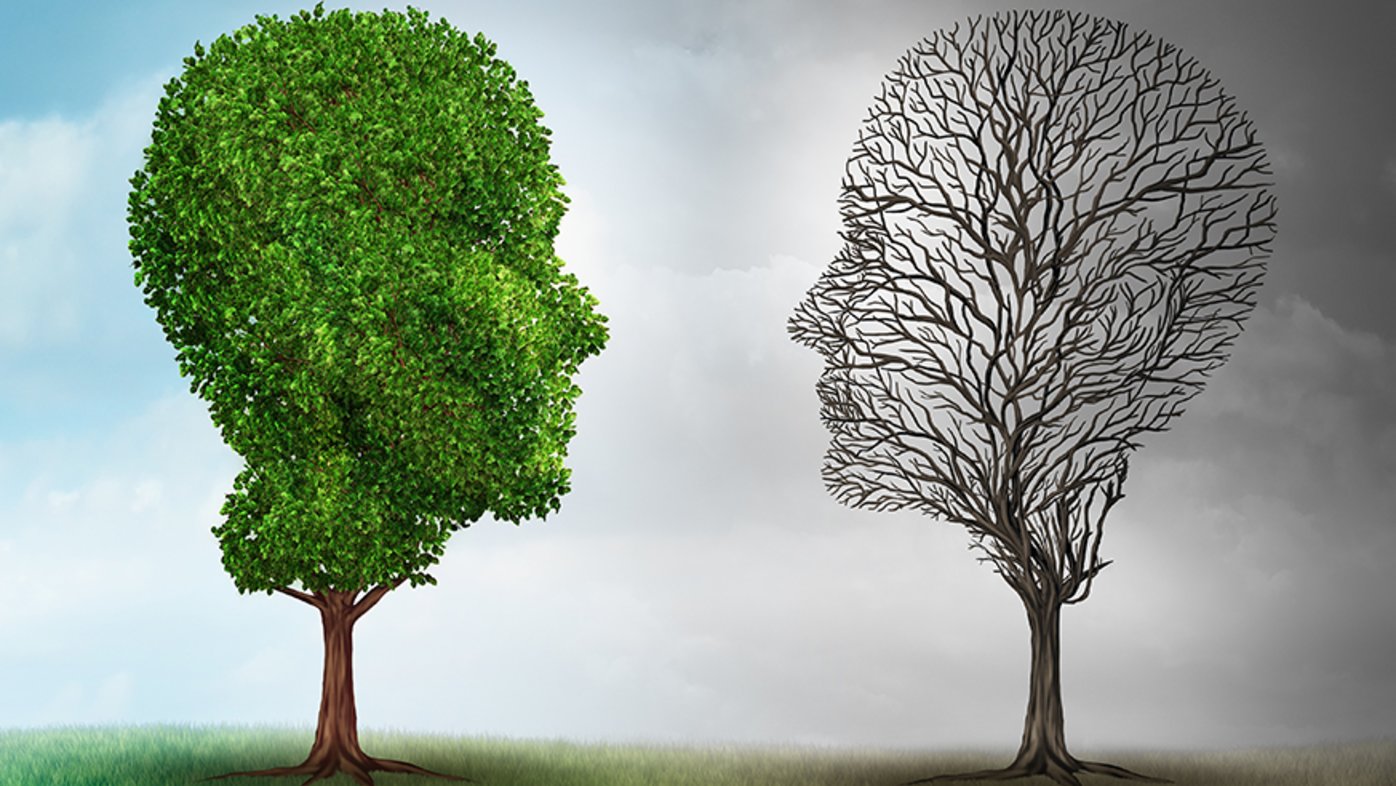
Bipolar disorder, formerly known as manic depression, is a complex mental health condition that affects millions of people worldwide. It is characterized by extreme mood swings, from emotional highs (mania or hypomania) to devastating lows (depression). In this article, we will delve into 15 fascinating facts about bipolar disorder, shedding light on its prevalence, symptoms, causes, and treatment options. Understanding these facts can help reduce the stigma surrounding bipolar disorder and provide valuable insights for those living with the condition, as well as their loved ones and caregivers. So, let’s unravel the intricacies of bipolar disorder and gain a deeper understanding of this often-misunderstood mental health condition.
Key Takeaways:
- Bipolar disorder affects 2.8% of adults in the U.S., causing extreme mood swings. Early recognition and comprehensive support are crucial for managing this complex condition and empowering individuals to lead fulfilling lives.
- Understanding the diverse dimensions of bipolar disorder, including its genetic link, mood fluctuations, and cognitive impacts, is essential for tailored interventions and destigmatizing the condition. Education, research, and holistic care are key in supporting individuals with bipolar disorder.
Bipolar disorder affects approximately 2.8% of the U.S. adult population.
Bipolar disorder, previously known as manic depression, is a mental health condition characterized by extreme mood swings that include emotional highs (mania or hypomania) and lows (depression). It can have a profound impact on a person’s life, often disrupting daily functioning, relationships, and work. The condition is prevalent, with an estimated 2.8% of the adult population in the United States being affected by this disorder. The 15 Interesting Bipolar Facts shed light on various aspects of this complex condition, providing valuable insights into its prevalence, symptoms, and management.
Bipolar disorder can occur at any age, although it often develops in late adolescence or early adulthood.
One of the intriguing aspects of bipolar disorder is its potential to manifest at any stage of life. While it can occur at any age, it frequently emerges during late adolescence or early adulthood. This pivotal period of transition and self-discovery can be significantly impacted by the onset of bipolar disorder, influencing educational pursuits, career aspirations, and personal relationships. Understanding the age dynamics of bipolar disorder is essential in recognizing and addressing the unique challenges faced by individuals across different stages of life.
Bipolar disorder has a strong genetic component.
Research indicates that bipolar disorder has a substantial genetic link, with a higher likelihood of developing the condition if a close family member also experiences it. The genetic component of bipolar disorder underscores the significance of family history in assessing the risk factors associated with the condition. By unraveling the genetic underpinnings of bipolar disorder, researchers aim to enhance diagnostic accuracy, develop targeted interventions, and refine personalized treatment approaches to mitigate the impact of this complex disorder.
Individuals with bipolar disorder experience distinct periods of mania and depression.
One of the defining characteristics of bipolar disorder is the presence of distinct episodes of mania and depression. During manic episodes, individuals may feel euphoric, energetic, or irritable, often engaging in impulsive behaviors with heightened risk-taking tendencies. Conversely, depressive episodes are marked by overwhelming sadness, loss of interest or pleasure in activities, and a pervasive sense of hopelessness. By comprehending the cyclical nature of these mood fluctuations, healthcare providers can tailor interventions to address the specific needs of individuals navigating the oscillating phases of bipolar disorder.
Bipolar disorder is often misdiagnosed as depression.
Due to the complexity of bipolar disorder and the overlap of symptoms with other mental health conditions, misdiagnosis is a common challenge. In many instances, individuals with bipolar disorder initially receive a diagnosis of depression, leading to delayed or inadequate treatment. Recognizing the distinct features of bipolar disorder is pivotal in ensuring accurate diagnosis and implementing targeted interventions that encompass the fluctuating mood states characteristic of this condition. The 15 Interesting Bipolar Facts illuminate the critical need for enhanced awareness and accurate identification of bipolar disorder to optimize patient outcomes.
Substance abuse is more prevalent among individuals with bipolar disorder.
Individuals with bipolar disorder face an increased risk of substance abuse, with the co-occurrence of these conditions posing intricate challenges in clinical management. Substance abuse can exacerbate the symptoms of bipolar disorder and impede treatment efficacy, underscoring the importance of integrated interventions that address both mental health and substance use disorders. Understanding the interplay between bipolar disorder and substance abuse is crucial in formulating comprehensive care strategies that address the complex needs of individuals grappling with these intertwined conditions.
Bipolar disorder can lead to strained interpersonal relationships.
The fluctuating nature of mood in bipolar disorder can strain interpersonal relationships, impacting familial dynamics, friendships, and professional interactions. The 15 Interesting Bipolar Facts shed light on the interpersonal challenges faced by individuals with bipolar disorder, emphasizing the significance of fostering understanding, empathy, and supportive communication within personal and professional spheres. By cultivating awareness of the impact of bipolar disorder on relationships, communities can foster inclusive environments that promote holistic well-being and social integration.
Early intervention is crucial in managing bipolar disorder.
Timely identification and intervention play a pivotal role in mitigating the impact of bipolar disorder on an individual’s life. Early recognition of symptoms, coupled with prompt access to comprehensive mental health support, can significantly enhance treatment outcomes and long-term prognosis. The 15 Interesting Bipolar Facts underscore the imperative of early intervention, advocating for proactive measures to address the multifaceted challenges posed by bipolar disorder and empower individuals to lead fulfilling and productive lives.
Bipolar disorder is not solely characterized by mood disturbances.
While mood fluctuations are central to bipolar disorder, the condition extends beyond emotional variability, encompassing cognitive and behavioral manifestations. Cognitive impairments, such as difficulties in attention, memory, and decision-making, are prevalent in bipolar disorder, contributing to functional impairments and diminished quality of life. By acknowledging the diverse dimensions of bipolar disorder, healthcare providers can adopt a comprehensive approach that addresses the multifaceted impact of the condition on an individual’s cognitive and behavioral well-being.
Stigma surrounding mental illness can exacerbate the challenges faced by individuals with bipolar disorder.
The pervasive stigma associated with mental illness can intensify the difficulties encountered by individuals navigating bipolar disorder. Misconceptions and societal prejudices surrounding bipolar disorder can hinder help-seeking behaviors and contribute to social isolation, amplifying the burden of the condition. The 15 Interesting Bipolar Facts underscore the critical need to combat stigma through education, advocacy, and inclusive support systems, fostering a compassionate and understanding environment that empowers individuals with bipolar disorder to seek assistance without fear of judgment or discrimination.
Bipolar disorder may coexist with other mental health conditions.
It is not uncommon for individuals with bipolar disorder to experience concurrent mental health conditions, such as anxiety disorders, attention-deficit/hyperactivity disorder (ADHD), or substance use disorders. The co-occurrence of multiple conditions can complicate diagnostic assessments and treatment strategies, necessitating a comprehensive and integrated approach to address the diverse clinical needs of individuals with bipolar disorder. By recognizing the potential comorbidities associated with bipolar disorder, healthcare providers can tailor interventions that encompass the complex interplay of these conditions, optimizing overall care outcomes.
Effective management of bipolar disorder involves a combination of medication and psychotherapy.
The treatment of bipolar disorder typically involves a multifaceted approach, integrating pharmacotherapy, psychoeducation, and psychotherapy. Mood stabilizers, antipsychotic medications, and antidepressants are commonly prescribed to manage the symptoms of bipolar disorder, alongside psychotherapeutic interventions that encompass cognitive-behavioral therapy (CBT), interpersonal and social rhythm therapy, and family-focused approaches. The 15 Interesting Bipolar Facts underscore the significance of a comprehensive treatment framework that addresses the biological, psychological, and social dimensions of bipolar disorder, fostering holistic well-being and resilience.
Self-care and lifestyle modifications play a pivotal role in managing bipolar disorder.
Adopting self-care practices and lifestyle modifications can significantly contribute to the overall management of bipolar disorder. Regular exercise, adequate sleep, stress management techniques, and adherence to a balanced diet are integral components of self-care for individuals with bipolar disorder. By cultivating a supportive and structured lifestyle, individuals can enhance their resilience and coping mechanisms, complementing the effects of clinical interventions and promoting long-term stability and well-being.
Education and awareness are instrumental in supporting individuals with bipolar disorder.
Enhancing public awareness and fostering a culture of understanding and empathy are essential in supporting individuals affected by bipolar disorder. Education initiatives, advocacy campaigns, and community-based support programs can contribute to destigmatizing the condition, promoting early intervention, and empowering individuals to seek appropriate care. The 15 Interesting Bipolar Facts underscore the pivotal role of education and awareness in cultivating inclusive environments that uphold the dignity and well-being of individuals navigating the complexities of bipolar disorder.
Research advancements continue to drive innovations in the understanding and treatment of bipolar disorder.
Ongoing research endeavors in the field of bipolar disorder are instrumental in unraveling the underlying mechanisms of the condition, elucidating novel therapeutic targets, and refining evidence-based interventions. From neurobiological investigations to clinical trials assessing innovative treatment modalities, research advancements play a pivotal role in enhancing the quality of care and outcomes for individuals with bipolar disorder. The 15 Interesting Bipolar Facts underscore the dynamic landscape of bipolar disorder research, highlighting the strides made in advancing knowledge and fostering hope for improved management and support.
Conclusion
Bipolar disorder is a complex and often misunderstood condition that affects millions of people worldwide. These 15 interesting facts about bipolar disorder shed light on the various aspects of this mental health condition. From the historical understanding of bipolar disorder to the latest research and treatment options, it’s evident that there is still much to learn about this condition. By increasing awareness and understanding, we can better support individuals living with bipolar disorder and work towards reducing the stigma associated with mental health challenges.
FAQs
What are the common symptoms of bipolar disorder?
Bipolar disorder can cause dramatic mood swings, shifts in energy levels, and changes in the ability to carry out day-to-day tasks.
How is bipolar disorder diagnosed?
Diagnosis often involves a thorough psychiatric evaluation, including a review of symptoms, medical history, and possibly a physical examination.
What are the treatment options for bipolar disorder?
Treatment may include medication, therapy, lifestyle changes, and support from healthcare professionals and loved ones.
Can bipolar disorder be managed effectively?
With proper treatment and support, many individuals with bipolar disorder can manage their symptoms and lead fulfilling lives.
How can I support a loved one with bipolar disorder?
Offering understanding, patience, and encouragement, as well as assisting them in accessing professional help, can make a significant difference.
Bipolar disorder is a complex mental health condition that affects millions worldwide. While managing bipolar disorder can be challenging, advancements in treatment options offer hope for those living with this condition. Antipsychotics, anticonvulsants, and mood stabilizers are among the most commonly prescribed medications for bipolar disorder, each targeting specific symptoms and helping individuals maintain emotional stability. Learning more about these medication classes can empower those with bipolar disorder and their loved ones to make informed decisions about their treatment plans and work towards a better quality of life.
Was this page helpful?
Our commitment to delivering trustworthy and engaging content is at the heart of what we do. Each fact on our site is contributed by real users like you, bringing a wealth of diverse insights and information. To ensure the highest standards of accuracy and reliability, our dedicated editors meticulously review each submission. This process guarantees that the facts we share are not only fascinating but also credible. Trust in our commitment to quality and authenticity as you explore and learn with us.


